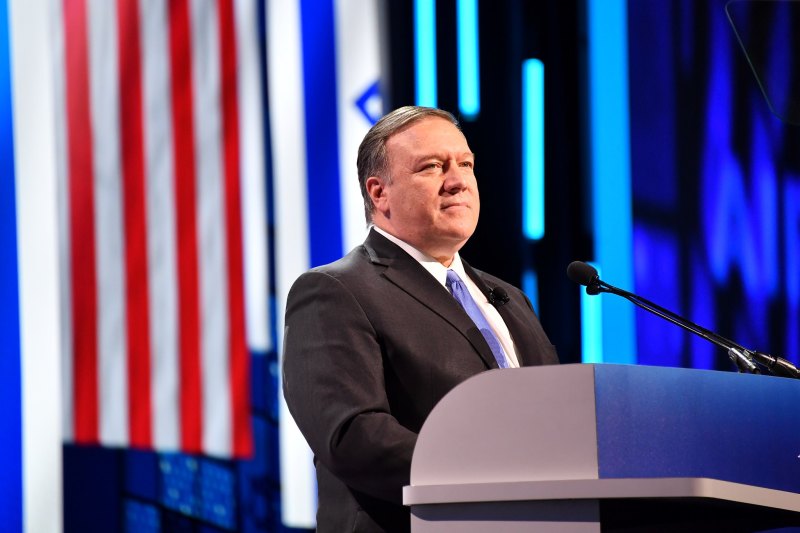
The United States is calling on the Chinese government for the immediate and unconditional release of citizen journalist Zhang Zhan.
In a statement released Tuesday, US Secretary of State Mike Pompeo said the government is condemning the "sham prosecution and conviction" of the 37-year-old Wuhan whistleblower.
He also criticized the Chinese Communist Party for silencing the voices that oppose it.
"The United States strongly condemns the People's Republic of China's (PRC) sham prosecution and conviction of citizen journalist Zhang Zhan on December 28," Pompeo said in a statement.
"We call on the PRC government to release her immediately and unconditionally," he said. "The Chinese Communist Party (CCP) has shown once again it will do whatever it takes to silence those who question the Party's official line, even regarding crucial public health information."
He also said Zhang's "hasty trial" shows that the communist government is "fearful" of its citizens who speak out against its lies.
During the early days of the coronavirus outbreak, CCP "restricted and manipulated" information about what was really going on in Wuhan, Pompeo pointed out.
Zhang, a Christian who reported about the government's handling of the Wuhan virus and gave firsthand accounts of the people's real condition during the outbreak on ground zero, was sentenced to four years in prison for "picking quarrels and provoking trouble" and for posting fabricated information.
She traveled to Wuhan in February 2019 to report about the outbreak. She went missing on May 14, and the following day, police brought her to Shanghai where she was taken into custody. She had been in arbitrary detention for more than seven months before she was given a trial.
While on detention, Zhang went on an extended hunger strike to protest the injustice being done to others like her. When the authorities learned of her hunger strike, they inserted a feeding tube through her nose and force fed her.
The feeding tube remained in her body for more than two months, causing her health to deteriorate quickly. Zhang complained of dizziness, stomach ache, headache, and pain in her throat and mouth.
She was not the only one who posted information about the coronavirus on social media. In December 2019, Dr. Li Wenliang, a 34-year-old doctor at the Wuhan Central Hospital, tried to warn the people about the virus. He was reprimanded by the police for spreading "rumors."
In February, Li said he tested positive for the coronavirus. He died a few days later. His death triggered a national public outrage over the CCP's suppression of information related to the coronavirus.
Chen Qiushi and Fang Bin, citizen journalists like Zhang who reported about the Wuhan coronavirus outbreak, also went missing. Chen disappeared for a time, and there are conflicting reports about whether he is back with his family or not. Fang is still missing.
Pompeo slammed the Chinese government for its treatment of these whistleblowers.
"The CCP restricted and manipulated information about the COVID-19 outbreak in Wuhan from the start and brutally silenced other brave truth-tellers, such as Dr. Li Wenliang, Chen Qiushi, and Fang Bin," Pompeo said.
"Because of the CCP's gross malfeasance, the rest of the world relied heavily on uncensored reports from citizen journalists like Zhang to understand the true situation in Wuhan after the CCP-imposed strict media controls were enforced and a controllable outbreak turned into a deadly global pandemic," he added.
Pompeo said the CCP's restriction and suppression of information is "a sign of weakness, not strength, and a threat to all of us."
He emphasized that the US will continue to support the rights of Chinese citizens to freedom of speech.























